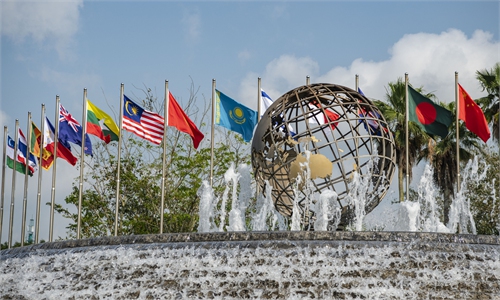Celebrate World Backup Day this Sunday by creating backup copies of your essential data to safeguard your digital lifestyle against potential loss. — Image by freepik
It is said that memories you make are priceless, but in this digital age, our data, whether text, audio, or video, has become equally invaluable.
And its value is not lost to cybercriminals, as data breaches have become so common that protecting personal information has become an ongoing challenge for individuals and organisations alike.
Last year, cybersecurity firm Sophos reported that over 90% of cyberattacks reported by its customers involved data or credential theft.
But hackers are not the only threat to your data – the device holding your information may suffer a hardware failure, be stolen, or even be destroyed in an incident such as a fire or flood.
Despite happening over two decades ago, the near loss of Pixar’s Toy Story 2 assets due to accidental deletion during the 1990s remains a memorable story.
The studio was “saved” by Galyn Susman, a supervising technical director who had been working from home after childbirth and had a remote backup.
Even though much of the film was eventually remade due to quality concerns, the character models and environments from her backup were integral to the final film.
 Arina hopes that as awareness increases and user-friendly backup options become more widely available, more people will incorporate backups into their digital routines. — Image by rawpixel.com on Freepik
Arina hopes that as awareness increases and user-friendly backup options become more widely available, more people will incorporate backups into their digital routines. — Image by rawpixel.com on Freepik
Last year’s layoff of Susman, along with 74 other employees, struck a chord with fans who remember her as the person who saved Toy Story 2.
As we approach World Backup Day this Sunday, March 31, it’s crucial to remember that although incidents of data loss might seem distant, nobody is immune to such occurrences.
Data dilemmas and disasters
Head of operations at Lucid Analytica, an analytics consultancy, Firdaus Jefri experienced data loss for the first time during his childhood when the hard drive of the family computer failed, resulting in the loss of numerous personal files.
“When my first PC, which I had as a kid, crashed due to a hard drive failure, it was devastating. I had important family photos, videos, and memories stored on it. I also made some great friends while playing games like Runescape and Halo Combat Evolved.
“Unfortunately, as a kid, I didn’t keep track of my passwords and didn’t know how to recover my accounts, losing contact with most of them,” he says.
He adds that his mother’s work documents were lost as well, though they weren’t devastating since she had hard copies on hand, requiring extra effort to recreate everything on a computer.
 Cloud storage services can be set up to back up files from a mobile device or a PC, but it’s important to maintain enough free space. — Image by rawpixel.com on Freepik
Cloud storage services can be set up to back up files from a mobile device or a PC, but it’s important to maintain enough free space. — Image by rawpixel.com on Freepik
Fast forward to today, and Firdaus has become a staunch believer in backups, having invested a significant amount into a self-built networked-attached storage (NAS) solution.
He estimates that he has spent approximately RM10,000 on storage for multiple drives totalling 20TB, with each drive serving as a backup for another. This setup enables him to recover data in the event that one drive fails.
Firdaus describes his solution as overkill for most users, though it’s a necessity for him, as his work involved handling large files.
When studying for his PhD, computer system engineer Lee Yang Yang was shocked to witness a fellow student fail his course due to losing his files just before the thesis submission deadline.
In Lee’s experience, users typically only begin to prioritise the security of their files after a personal encounter with data loss.
“If you think a file is important, back it up. It is worth your money to have the extra storage. This would include private and confidential files that could cost you a fortune or even your job if the data is lost,” he says.
Better safe than sorry
While data recovery programs and services (read “Get Your Data Back”, StarLifestyle, May 29, 2023; online at bit.ly/datalostandfound) are available that could help restore lost files, the costs involved are steep.
 Sin says that having a comprehensive backup strategy is crucial for recovering from such incidents, likening it to 'insurance' for digital assets. — Synology Malaysia
Sin says that having a comprehensive backup strategy is crucial for recovering from such incidents, likening it to 'insurance' for digital assets. — Synology Malaysia
According to Jason Sin, Malaysia country manager for Synology, a company that specialises in NAS storage, the substantial price tag doesn’t guarantee complete data retrieval.
To save oneself from the headache and hefty fees involved in recovering lost files, it’s best to have a backup system in place.
Nur Arina Ramlee, chief technology officer at Cybersolution Technologies, stresses the value of having proper backups.
“Unfortunately, typically, users do not regularly backup their data as often as they should. Usually, this comes down to a few key elements.
“Many users underestimate how upsetting data loss may be when it occurs to them or believe it only happens to other people.
“People are sometimes discouraged from starting because they believe that creating backups is complicated and time-consuming,” she says.
Arina hopes that as awareness increases and user-friendly backup options become more widely available, more people will incorporate backups into their digital routines.
She recalls an incident involving a restaurant, which was exploring franchising opportunities at the time. The restaurant owner had stored all the key components of the company, including financial records, designs for its franchising plan, and even his beloved recipes – which he spent years perfecting and digitising – on a laptop.
That laptop was stolen at an airport during a business trip, resulting in the loss of years’ worth of data.
The rise of ransomware is another threat to data. In a ransomware attack, the files on a computer system are encrypted, in most cases rendering them unusable, with the threat actor demanding a ransom payment to decrypt the data.
Sin says that having a comprehensive backup strategy is crucial for recovering from such incidents, likening it to ‘insurance’ for digital assets.
 Arina recommends a straightforward approach to backup by starting with identifying the data crucial to your daily digital activities. — Cybersolution Technologies
Arina recommends a straightforward approach to backup by starting with identifying the data crucial to your daily digital activities. — Cybersolution Technologies
“Ensuring data security and continuity is paramount for users and businesses alike.
“Creating a backup strategy is like providing a safety net, allowing users to restore their data to a previous state and resume normal operations swiftly.
“As digital lifestyles become more prevalent, the potential impact of data loss on both personal and professional fronts has heightened, underscoring the importance of robust backup practices,” he says.
As for companies, Sin highlights cost concerns and limited resources as major reasons why small- and medium-sized businesses (SMBs) often neglect backing up their data.
This is due in part to hardware, software and maintenance costs, along with the lack of a dedicated IT team to manage backup infrastructure. Time constraints, data fragmentation, and the need to evaluate security risks are other factors that can also hinder efforts.
In the long run, such neglect can make it significantly more difficult for a company to recover from cybersecurity incidents such as data breaches and ransomware attacks.
Sin highlighted that the Personal Data Protection Department (PDPD) reported a staggering increase in data breach cases. It received 130 reports by June 2023, a four-fold increase compared to the entire year 2022.
“Such breaches lead to significant financial losses due to causes like configuration errors, hardware damage, data leaks, and malicious encryption,” he says.
Seeking simple solutions
According to a report from data recovery service provider Reno Research Lab, over half of data loss cases in 2023 resulted from user error, primarily accidental deletion (56.38%), with drive corruption coming a distant second, accounting for only 18.09%.
These incidents could have been avoided if users simply made one backup copy.
 According to a report from data recovery service provider Reno Research Lab, over half of data loss cases in 2023 resulted from user error, primarily accidental deletion (56.38%), with drive corruption coming a distant second, accounting for only 18.09%. — Photo by Markus Spiske on Unsplash
According to a report from data recovery service provider Reno Research Lab, over half of data loss cases in 2023 resulted from user error, primarily accidental deletion (56.38%), with drive corruption coming a distant second, accounting for only 18.09%. — Photo by Markus Spiske on Unsplash
Fortunately, thanks to the widespread availability of free cloud storage, hefty investments are often unnecessary.
Popular and easy-to-setup options that offer free storage space include Google Drive, Microsoft OneDrive and Apple iCloud.
However, without a subscription, the free storage is limited, with Google Drive offering 15GB for free, while both OneDrive and iCloud provide only 5GB each at no cost.
The cloud storage services can be set up to back up files from a mobile device or a PC, but it’s important to maintain enough free space.
The services provide a range of subscription packages with different storage spaces, with family options typically offering better value for money.
To backup your PC with OneDrive’s desktop client, access the settings menu and navigate to the “Sync and Backup” tab.
From there, select “Manage Backup” to choose which folders, such as Documents, Pictures, Desktop, Music, and Videos to back up.
Unfortunately, OneDrive doesn’t support custom folders for backup, so users have to move their files to one of the listed folders.
Android smartphone users can check out Google Drive for backups. It can be turned on by going to the settings menu and selecting “Backup and reset” and then switching on the “Backup by Google One” option.
This feature automatically backs up various types of data, including apps, SMS and MMS, call history, and device settings when connected to WiFi.
However, remember to manually enable backup for photos and videos in this menu, as it is turned off by default.
For faster access and complete control over your backups, consider using a NAS (network-attached storage) device. It’s a dedicated storage server that connects to your home WiFi network.
It also provides a centralised location to store and access files and data from multiple devices, such as computers, smartphones, and tablets, over the network.
Essentially, it functions as a personal cloud storage solution, offering other features like file sharing, media streaming, and remote access.
However, NAS devices, which come in various configurations and storage capacities, are not cheap.
Those who are more technically inclined could opt to assemble their own unit, but this will require researching various topics and familiarity with terminologies like RAID (redundant array of independent disks) and learning NAS-specific operating systems like TrueNAS and Unraid.
However, if you’re seeking a robust backup plan, consider adopting the popular 3-2-1 backup principle.
It’s a straightforward rule – though very demanding – that is designed to ensure that your data stays safe no matter what happens.
Let’s break it down: “3” stands for having at least three copies of your data; “2” means storing them on two different types of media; and “1” emphasises keeping one copy offsite or on the cloud. This method ensures that your data is well-protected against accidents, hardware failures, and other unexpected events.
Arina recommends beginning with a simple approach: identify the data essential to your daily digital life, such as chat messages, pictures, and documents.
“The key to this is to back up regularly or set your backups to run automatically. Some applications that users use daily may already have this readily integrated into their cloud accounts.
“And remember to test your backups once in a while to ensure they work when needed,” she says.
Sin emphasises the importance of education and awareness in establishing a strong backup culture.
“We encourage everyone to share the significance of backups with friends, family, and colleagues,” says Sin, “in order to collectively cultivate a more secure digital environment.”
Source link\


















